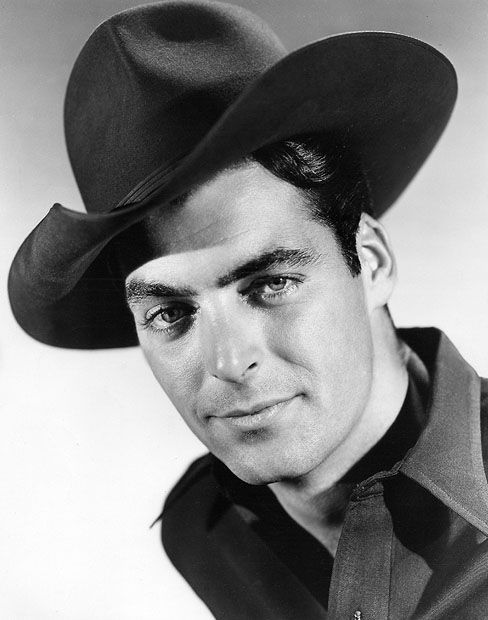Hi guys! For the past… ever, I’ve been putting my health and fitness aside. I tried a few times to get into the habit of exercising to no avail. I’m not overweight or anything but neither am I strong or flexible as I want to be. Mainly because I don’t want to have health troubles later in life. HOWEVER, to get started I needed to google of course and… best 10 xyz, do this, don’t do this, you breathe wrong, you stand wrong, you do everything wrong, this is the only solution. All of these can be found about anything related to fitness. How does one get started with all this nonsense, misinformation and clickable? What’s even real anymore? Thank you in advance :)
Exercise used to feel a lot more like work until I started listening to podcasts during my runs and weight training. Now I cue up episodes that interest me in advance and actually look forward to it. Most of the time.
Also I found starting slow and easing into shorter workouts lowered the barrier to entry for me. Then gradually added to my workouts in length and difficulty. Doing something is better than nothing.
If you’re not overweight and simply want to become more athletic I personally think the most important thing to do is to find an activity you enjoy. That’s something you have to discover for yourself.
For example, I can’t stand working out for the sake of working out at a gym. But I do get really motivated by climbing, hiking, trail running, and skiing. Climbing builds strength and has a certain level of problem solving involved too so it’s mentally stimulating. Hiking and trail running are excellent cardio and have clearly defined goals to reach a certain summit or some endpoint. And skiing is just a blast in all forms. All of that keeps me active and having fun while I’m doing it. That makes me want to do it more which allows me to set bigger objectives and then it builds on itself.
It’s important to note that fitness is not really a project with a beginning and an end - it’s a journey that you will be on for as long as you live, basically. As such, you ideally want to find things that:
- Can sustainably fit into your life
- You truly find joy in doing
For example, I used to think that the only viable form of cardio was running, and that I needed to be running for the sake of my health. The problem is that I fucking hate running, I consider it to be boring as shit. Hence it was always an uphill battle to run for me.
In its place, I’ve found cycling to be an endless source of fun - I don’t really have to try hard to go cycling, because I yearn to do it as much as I can reasonably fit in.
So I recommend that you try different things until you find something that you really enjoy.
Other than cycling, I really like strength exercise. I used to have easy access to a gym earlier in my life, which is unfortunately not true where I live today, so to get strength work done, I do a routine of body weight exercises. This is by no means the perfect way to become stronger, but you really shouldn’t let perfect be the enemy of good. The best fitness activities are the ones that you can consistently do indefinitely.
Finally, two things that caused problems for me at the start of my fitness journey:
Having neglected strength work for all my life gave me some muscle imbalances that didn’t correct themselves by just doing regular workouts, I had to consult with a physical therapist to learn how to counteract these years of inactivity. The same may or may not be true for you.
Being overweight posed a big challenge at the start of my fitness journey - higher-intensity exercises can really hurt when your organs are a bit cramped by fat. After a huge struggle with dropping my weight, I noticed that a lot of exercises that previously hurt a lot no longer do. This may or may not be applicable for you either.
This is truly exceptional advice. Those two bullet points alone will take you so far in your journey to good health.
I’ll just add that it’s OK to start slow. The only person you need to compare yourself to is yourself, and if you’re not doing any exercise today then even just 20 minutes a week is improvement.
Having neglected strength work for all my life gave me some muscle imbalances that didn’t correct themselves by just doing regular workouts, I had to consult with a physical therapist to learn how to counteract these years of inactivity.
what imbalances did you have, and why can’t they be corrected with regular work-outs?
Weak glutes, hip imbalance and hamstring tightness were the ones that didn’t improve through ‘regular’ strength work, I needed to do some more targeted exercises to get those things going.
I also had some back weakness leading to neck problems, but I didn’t need the help of a physical therapist to work that out, I noticed it and found corrections for it on my own. The regular strength work didn’t help solve those either, though.
I second the recommendations here about finding an activity that you like. For me it was rec sports. Gets me out of the house a few days a week, and for me it was an activity to help me stay active but also a reason TO get fit. I wanted to feel less beat up after playing, so I started working out and stretching regularly.
I also had trouble with getting to the gym, and had trouble with focus and picking workouts, so I had success with P90x. It’s all workouts you can do at home with some adjustable dumbbells. I think I got a deal on the streaming subscription to Beachbody for 100$ for the year. Then I just followed the program and the workout calendar. They have a number of different programs on there, if you want to get ripped I recommend P90x, if you just want to do some sort of workout for 30 minutes a day I’d recommend p90x3 because it’s easier to stick to.
That was a good start for me, but I ultimately settled on just picking my favorite moves from the program and I switch between upper and lower body workouts every day because I found I was consistently skipping certain days of the programs.
Walk very far distances. Before cars, a lot of people walked between towns. It was completely normal and safe if you know what you’re doing. I have friends who sometimes walk up to twenty miles to the neighboring towns because they swore off vehicles, and they show up and people are flabbergasted like they’re thinking “holy crap it’s a miracle you must be gods” as if the friends didn’t just have to use two feet for two hours to get there. But that’s what a human is supposed to do, biologically that is. And you don’t even have to run, in fact it’s better for your body and mind to walk than run.
Also, sleep well and stay hydrated. Sleep controls metabolism. Metabolism controls fitness. Bad sleep equals bad metabolism. Same goes for hydration. Drink a pint of water every time you piss. That’s probably why there are drinking fountains next to bathrooms. All this advice has worked for me too.
If your friends are walking 20 miles in two hours they very well might be gods
To be fair, I rounded that up a little crudely. Sources say it’s ten to twelve miles, but nobody knew if that counts the distance between their house and the town edge, and when they do it, it’s about two and a half hours, but I mistakenly rounded it down instead of up for the same reason.
I’ve been living abroad in Barcelona for the past month and it’s fucking wonderful to go for a fifteen kilometer walk before lunch… the city is so comfortable to walk in and I never feel in danger as a pedestrian (unlike Vancouver).
Get into a sport yould enjoy. Find like minded people and have fun. Take it seriously, and the fitness just comes as a by product.
My general advice thought - start small. Move your body, drink water, try to establish healthy eating habits with all the colors (greens, vegetables, whole grains, etc).
Whatever you do won’t be wrong. It’s always a good thing to do a good thing for your body, whether its big or small or a regime or a once-in-a-while thing.
Fit can mean lots of things. What specifically are your goals? Sit down and think about what you really want and be specific. Are there particular sports you want to focus on? Particular fitness goals like be fast, be strong, be muscular, run long distances, etc? Define your specific goals and from there you can create a specific plan to meet those goals. If you have general goals and particular sports you like, it can help to turn your general goals into specific goals in those sports. If you like running and want to work on your endurance, pick a half marathon to train for. Setting specific goals with deadlines helps you define and stick to a specific plan.
If your goal is healthspan, the book Outlive has a great section on planning your exercise for longevity and healthspan:
https://peterattiamd.com/outlive/
Nutrition: eat sufficient protein (more than you think), establish a minimum amount you need based on your lean body mass and activity levels. Use fat and carbohydrates to meet the rest of your caloric goals. Try to avoid “bad carbs” (fructose in sweets and processed foods) and bad fats (trans fats, hydrogenated oils, omega 6 fats from seed oils, again processed foods) but getting enough protein and avoiding excess calories is vastly more important.
Resistance training: this will depend on your specific goals. Hip hinge (squats, deadlifts) and pulling exercises (rows, pullups, deadlifts) are probably the most important. You probably want to plan and periodize your workouts. I am a huge fan of 5-3-1 for strength development. I’ve tried many programs over the years and this is the only one that doesn’t plateau prematurely for me. I do this 2-3 times a week.
https://www.jimwendler.com/blogs/jimwendler-com/101065094-5-3-1-for-a-beginner
Cardio: I break this into high intensity and low intensity. Again, you should tailor this to your goals but generally you want to do 80% of your cardio at low intensity (heart rate zone 2 in the 5 zone mode) and 20% at high intensity (zone 4-5). There are lots of ways to skin this cat depending on what cardio activities you enjoy. I do 1-2x 20 minute high intensity workouts a week and 2-3x hour long low intensity workouts a week.
As others say, start slow. Add one of these changes at a time and give your body a few weeks to adapt before adding another change.
Diet is really important. Eat light breakfast such as museli, oats etc, lean meat, egg for lunch and dinner. And A little exercise is all you need.
- Skip rope. Grows stamina, heart and other muscle strength, breathing strength, probably balance as well
- Commute/move around by walking/bicycling. Chain with the public transport if possible and if the distance is otherwise too big (I have cycled tens of thousands of kilometers just to get to school/work/leisure time places)
- Check out the multi-stage fitness test! Here’s one video you can try out!
- Try out dancing! If it’s fast enough, it can be one of the most effective fitness activities there is! Trains your body, trains your brain (familiarize and learn movement patterns and pace them with them music) and trains your social skills (if you do dances that require partner(s))
Some tricks:
- Gamification. Habitica as an example. Take/infuse your favorite game mechanics to your exercises! Come up with a nice reward system!
- Follow progress. Write down the reps, time periods done and other information to see that you have actually developed! You can play with making charts to visualize this even further!
- Distract yourself while at it. Watch a movie, listen at music/podcast
- Build some kind of a exercise plan. At the gym as an example. What you do, how often, how long breaks and how often, what muscles it affects. Alone or by the help of someone else
- Don’t do it alone! Exercising with friends can be at least double the fun!
- Challenges! “I will do x amount of x, before x o’clock, x times in a day, x days in a week!” You can also challenge friends to do the same stuff and even come up with a chart or start using an app that follows everyone’s exercise for some competing!
- Start with a too easy plan that you do less often. Rise up the reps and the cooldown in between with the slightest (It’s not exercise but I started being less at the computer by 1min in day 1, 2min in day 2, 3min in day 3 etc. Now I’m at 166min/day)! This helps building a new habit. And don’t be afraid if you fail to do stuff a couple of times - try again or lower the requirements. A little is always better than none at all!
- Find cheap equipment at recycling centers! I like tennis and found a racket or two in 20€ in an excellent shape (they can cost hundreds as new)!
Some gamification ideas:
- Collect resources through reps. You can build stuff with them - buildings and villages, machines, whatever!
- Collect followers through reps. Come up with a cause that can make it fun!
- Collect strength, wisdom, power through reps. Beat up more and more difficult opponents and reach godhood (or something else)!
- Advance in evolution with reps. Start as the smallest speckle of life, eat, grow, mutate and become the most epic creature there is!
- Advance a quest line or something else with reps. Become a squire and then a knight and later a king or save up the world little by little or whatever!
- Collect particles with reps. Build protons, neutrons, electrons with them and further build every atom there is in the existence!
- Build up a factory or something. Reps can be money.
- Draw a Tetris box on the paper. Come up with activities/reps and determine a shape for each. Then fill your Tetris box with those shapes by doing the required things! You can make different box sizes, shapes and build even level categories that include many different levels (like, Easy category which has smaller boxes, mediocre that has bigger ones etc)
Remember: Make it as fun as you can, and you’ll create a habit more easily!
In my case it has been perseverance and dedication. I’m 120kg and 6ft4. I feel ok, but I am at least 15 kg over weight. I have two kids, and I realised I was getting less able to do things they wanted to do with me. The timeframe where they will actually want to do things with me is getting shorter too, so I’ve been running to improve my health and general fitness. It’s painful, difficult, and I end up pretty sore, but I’m getting a little bit better each time, and I’m sticking with it this time. So I guess to answer your question, you get started by deciding it’s time and the various reasons you have are important enough to keep trying. I let my health go during the pandemic and I really needed to do something about it for my family. If you’re able, I would start with brisk walks, that gradually turn into periods of jogging on the walks, which gradually get longer… Good luck
Here’s a thread I can really use! I’m trying to start a new healthy habit, but I’m struggling a bit.
Having a birthday with a zero on the end of it this weekend. It’s a bit of a mind fuck (as they have tended to be in the past.)
I’m a pretty healthy guy in general: still weigh what I did in college, been eating low-carb for several years… Been on a walking project where I decided to walk every street in my ginormous suburb while picking up trash as I go (it feeds my soul).
Which brings me to my struggle: I’ve recently been diagnosed with osteoporosis (fawk) which means, among other things, no longer putting off the weight-bearing exercises I’ve known for years are good for me (us). About a month ago I got some hand weights and have been doing a youtube workout thing (which my sister has been doing most of this year).
So what’s the problem?
I hate it. It’s such a grind. The walks? I look forward to those! The fresh air, the sunshine, the podcasts, the sense of accomplishment, exploring new neighborhoods, seeing the progress… The weights? Ugh.
So I’m wondering what I can or should do to “get my mind right”. It’s very possible that it’s going to be a “just fucking do it” situation? Maybe when I start seeing (and feeling?) some progress it will become self-reinforcing. Maybe I need to put on a podcast and turn down the volume on the workout vids…
Any advice? For you regular weight-pushers, what’s your ‘secret’? What get’s you thru your workouts?
TL; DR: I need to start lifting weights and I hate it. Looking for advice.
Look up starting strength. Rippetoe (the author) is an asshole, so hit the seas if you like, but his programming is legit. You won’t spend much time lifting, as compound lifts reduce the time needed, so that should make it easier. You only need to learn 5 lifts and not all at once, either.
There is tons of advice all over this thread, Many roads lead to Rome as they say. But with you looking at osteoporosis it’s time to start lifting
What worked for me was barbell training. The four compound lifts are by far the best bang for your buck, a simple program based around those and eating with intent took me from a lifetime as a skinny guy at 165lbs to over 200lbs and very strong and stout looking
Download boostcamp, choose one of these programs: Greyskull LP, GZCLP, or 531 for beginners. Start with some conservative starting weights and do what the program says. They will slowly progress you up and get you familiar with your compound lifts. They will have you lifting three times per week, and generally you can get it done in an hour or so. After three or four months You can switch over to a slightly more advanced program, I love the simplicity of 531 BBB. Tracking this all on the Boostcamp app really made me love lifting and watching my progress get better and better as time went on.
Steer clear of bro science, If you want to do any reading stick with the fitness wiki and ignore everything else unless it’s Renaissance Periodization on YouTube
Start small and do one thing right and stick to it. Look at a YouTube video explaining you how to do that one exercise correctly. If you feel pain, you do it wrong.
That’s it, that’s the whole magic.
Start with something light, like 5 pushups, every other day and keep doing so. Soon you wan to do 5 pushups and 5 deadlifts and 5 crunches. Then you start to quadruple the amount and at some point your workout becomes too long, so you split it up. That’s it, you’re in.
All these fitness apps are total overkill. You start the workout and then boom “do these 20 things in 40 reps”. Nah, that’s how people get frustrated and stop.
Also sore muscles will go away at some point. I only ever get sore muscles when I work out something new or had a long break.
Definitely start light. And don’t rush to increase your reps or time or anything like that. Even just 5 pushups a day. Get in the habit and make it a part of your routine, like brushing teeth. Then after it’s something you don’t forget to do, just increase it a little every few weeks or months. Even just 10 minutes is good, but if you can eventually get up to an hour, that would be better. Warm up for more rigorous exercise, do some walking or some pushups. Hell, even just having a daily walk is a great way to exercise especially if you have some good sights nearby.
If you have a gym membership, do stronglifts 5x5 to start. It’s a scheduled workout plan with basic compound exercises, meaning, they don’t focus a single muscle, but a movement instead. Ease into it, all of them need a degree of technique so you don’t injure yourself in the process. 3 days a week to start is good, don’t push yourself this early on. Your body needs to be made aware that working out is something that will happen constantly, and that takes time. It will suck at first, everything will hurt, even muscles you didn’t even know were there. You will also be more hungry. Eventually, DOMS (muscle pain after working out) will become tamer, only then should you think about increasing your workout sessions.
If health is your primary motivating factor, be mindful of what you eat and how much you sleep. We need every kind of nutrient, but if at the end of the day you have a calorie excess, and you’re not working out like a madman, you will gain weight. Mind you, most of the calories we burn aren’t burnt on a treadmill, we just burn calories by being alive. So, better to have a healthy diet with some cheat days, than stress about what to eat and what not to eat.
Unless you take drugs, doing two or three full body workouts a week separated by 72 (for 2) or 48 (for 3) hours is far more optimal for protein synthesis operation. PPL and upper lower bro splits only work when you literally don’t have to worry about recovery (perfect T and other hormones).
But the rest of this is great advice and would recommend Starting Strength before 5x5.
Oh, I wasn’t aware. I’ve been doing 3 days a week because of time constraints. So PPL isn’t good unless you’re on supplements? What other regiment would you recommend?
I’m talking about endogenous and exogenous hormones. Peptides, steroids, sarms and the like. But with training, recovery is always the most important factor for muscle growth with synthesis, so unless you have perfect conditions all the time (impossible for a natural) it’s better to optimize around recovery than being in the gym. Starting Strength is great for beginners like OP.
I’ve been doing a volume Bench Squat 5x5 Dead 1x5/intensity (start by doing heavy weight for sets of 5, when that’s too heavy do sets of 3, then down to 5 sets of 1, 3 sets of 1, a single max, then reset) 2 day split with one light day with band work to improve ligaments and neck work to avoid another herniated disc. I honestly consider this the best for naturals in both recovery and time, but with more exercises added in. I’m restricting to the main lifts for powerlifting competition, but adding accessories to focus more on triceps, or rack pulls, etc would be good. Since starting this a few months ago my squat has gone from a 1x5 315 squat to a 415 max and 325 5x5 as a 6’2 natural powerlifter (I’ve only been lifting seriously for 3 years and powerlifting for a year and a half, my trainer has been training for 15 years and hit a 610 deadlift naturally but now in his 30s with low 300 free test he takes TRT)
5x5s are great, Practical Programming is a good book to follow Starting Strength, I recommend reading Alex Leonidas’ Naturally Enhanced for a more hypertrophy approach. The Texas Program is good. Most of these are designed around the same concept of a 2 day full body one volume heavy the other intensity.
Hm, interesting. I’ll do some of that recommended reading, Practical Programming specifically. Honestly, I don’t do lifting for athleticism anymore. Lift heavy rock make sad voices go away, mostly. But if I can work smarter, I’ll do that.










